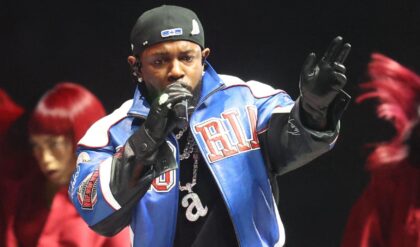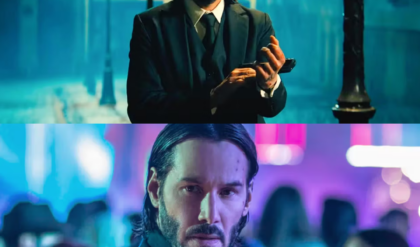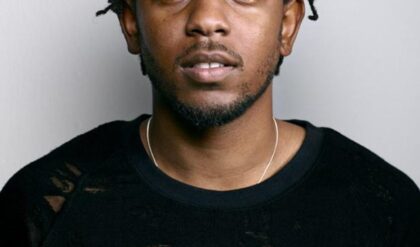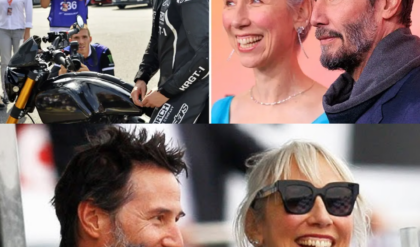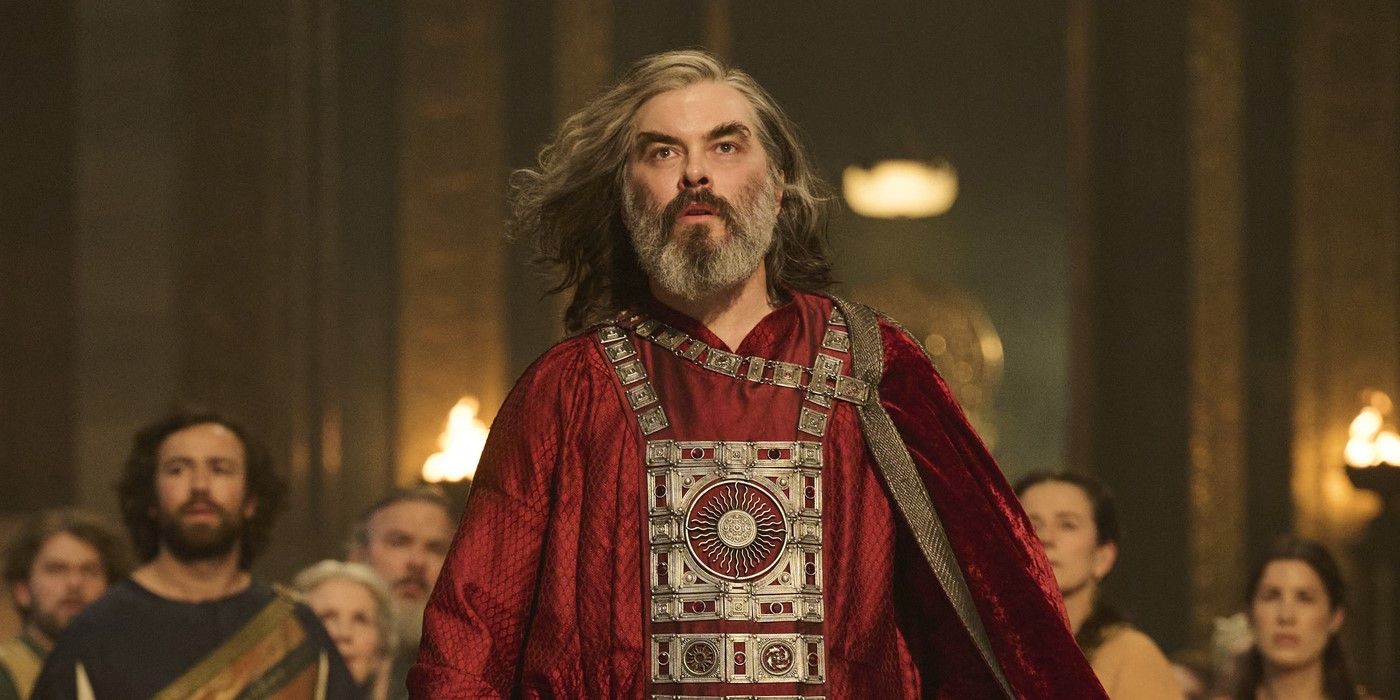
In an interview with CBR, actor Trystan Gravelle explains how he crafted the character of Pharazôn and what he brought to the ideas previously established in J.R.R. Tolkien’s works. He also discussed why Pharazôn felt compelled to touch the Palantír in Season 2, Episode 5, “Halls of Stone” — something he expressed disdain for in public. Plus, learn why Gravelle thinks human nature and curiosity could lead to the new king’s eventual downfall.
CBR: Pharazôn’s very Machiavellian mindset is evident in your portrayal. Were there any other influences in real life or fiction that you brought to your iteration of the character, and did anything help to make his actions more justifiable?
Trystan Gravelle: I read The Prince by Nicola Machiavelli, which is his main work. It’s a survival guide for what was really sort of precarious and dangerous times. It wasn’t just for the sake of being shifty or anything; it was to just get by without getting conquered, without getting killed, and it was very clever and ahead of its time. He got punished for writing that because this guy and his ideas are dangerous.
There’s Sun Tsu’s The Art of War , there’s Plato’s Republic , there’s Marcus Aurelius. You read these stories of what people aspire to be with themselves, because I think Pharazôn is a philosopher as well as a Chancellor and an old sea captain. I was reading Henry Kissinger’s book on leadership, and what fascinated me was he met with Charles de Gaulle, the Prime Minister of France, and then Konrad Adenauer of West Germany at the time just after the Second World War. Both those leaders had to rebuild how the world saw their countries, and this is what Pharazôn is having to do after this war that we lost in Middle-earth .
I always mention Tim Marshall; I like his books on geopolitics. I think they’re fantastic because they really do give you an interesting perspective of how we are shaped by our environment. I also like David Frye’s Walls , which is about the people who built the walls and lived behind the walls and, of course, the so-called barbarians that live on the outside — the insiders and the outsiders of any circle. And I think that was a big influence on me. Anybody who writes a little bit outside the box and where you can just look in on yourself and there’s a chance for reflection there and, as well, to showcase the absurdity of life.
It’s no secret that the people of Númenor don’t seem to remember what the Elves did for them. But it doesn’t change the fact that Pharazôn was also compelled by the Palantír, even though he outwardly claimed that they shouldn’t be touching anything of Elvish nature. Why do you think he interacted with the Palantír?
He’s not a superstitious man. He’s very practical and pragmatic, and he’s a utilitarian. You can note this by the way he says things. He still says Númenor and not Westernesse. He uses Quenyan names . He’s not altogether puritan; he’s utilitarian. So him using Quenya is just to get his information across quickly to people. It’s not altogether about us and them; it’s about us going forward.
I think that it’s clever that he will incorporate bits of Quenya into his Adûnaic speech ; even though he’s all for Adûnaic, he will do what is necessary to get this point across to get that result. So touching a Palantír is not beyond the realm of possibility for Pharazôn; he will use anything in his power to better the life of his people and the trajectory of where they’re going.
What do you believe Pharazôn thought when seeing Sauron in the Palantír? Viewers know from Tolkien’s texts that Pharazôn and Sauron work together at a certain point, which leads to the downfall of Númenor.
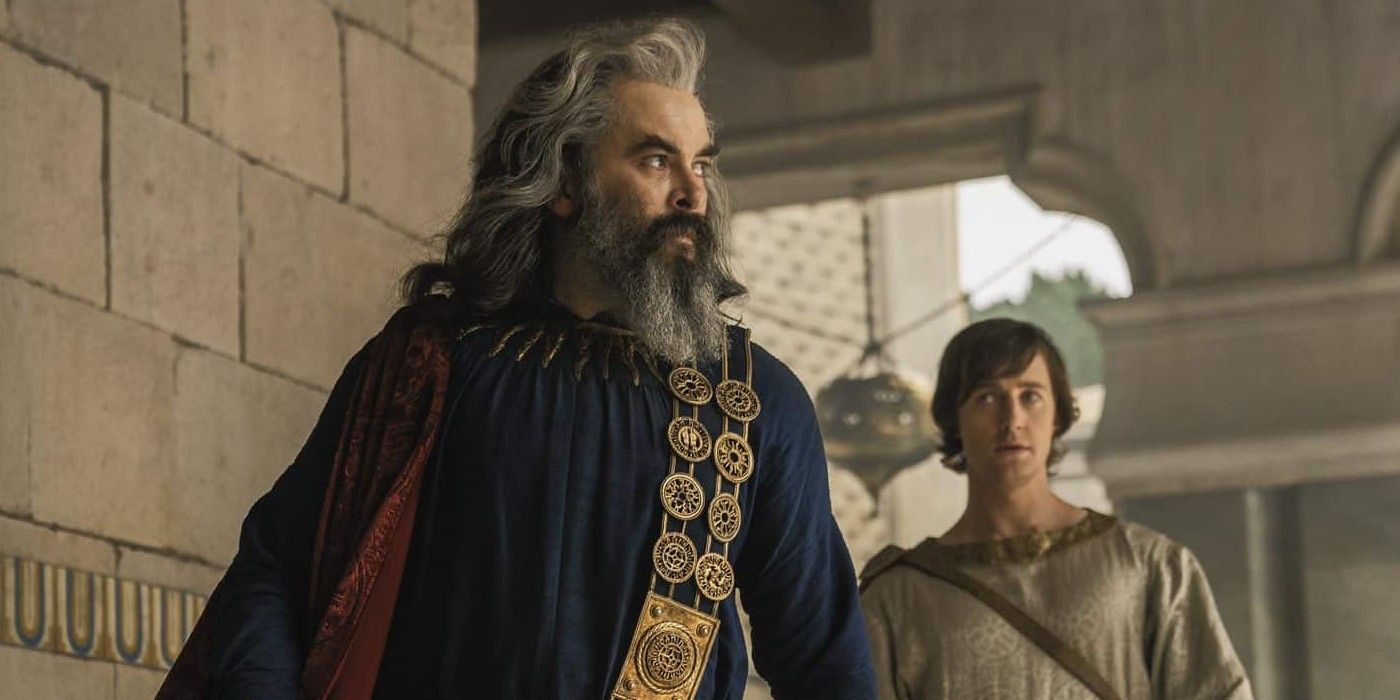
It’s a hard one, because he epitomizes the id of man. He can quash it and behave objectively and look at things objectively, but I think here’s a man bursting with pride, and he views himself really as Garry Kasparov or Magnus Carlsen; he’s the ultimate chess player. And to find that [Sauron] has possibly outsmarted him or there’s somebody he hasn’t been able to see through can be quite galling.
There are a lot of things that he might not want to admit to, and a lot of other emotions that he might want to admit to as well. I think we’re all, all of us, riddled with them, and anything that we do is a coping mechanism. I don’t think he’s any different from that.
The Lord of the Rings: The Rings of Power Season 2 streams Thursdays on Prime Video.
